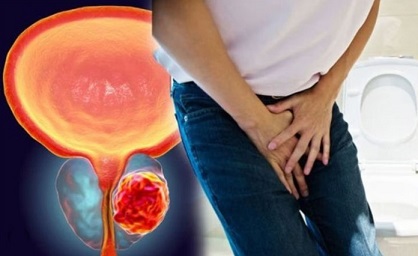Nikhil Prasad Fact checked by:Thailand Medical News Team Jun 08, 2024 1 year, 6 months, 1 week, 5 days, 2 hours, 18 minutes ago
Cancer News: Cholesterol is commonly known for its role in heart disease, but its potential impact on cancer, particularly prostate cancer, is gaining attention. Prostate cancer is one of the leading types of cancer among men, and recent studies suggest that cholesterol might play a significant role in its development.
 Cholesterol Intake Might Influence Early Prostate Cancer Development
What the Research Says
Cholesterol Intake Might Influence Early Prostate Cancer Development
What the Research Says
Researchers at Université Clermont Auvergne in France conducted a study that is covered in this
Cancer News report, using fruit flies to understand how cholesterol impacts early prostate cancer development. They chose fruit flies because their biology allows for easy manipulation and observation of cancer progression.
Cholesterol and Tumor Formation
The study focused on the initial stages of tumor formation, particularly a process known as basal extrusion, where cancer cells start moving out of their normal location to form new tumors. This step is crucial for the spread of cancer.
Using genetically modified fruit flies, researchers found that cholesterol is crucial for basal extrusion. They observed that tumors in the flies accumulated high levels of cholesterol, similar to what is seen in human prostate cancer cells.
Diet and Cholesterol Levels
Interestingly, the study found that a high-cholesterol diet alone did not significantly increase tumor formation in the flies. However, when they genetically modified the flies to disrupt cholesterol metabolism, the tumors could not form properly. This indicates that while dietary cholesterol is not the only factor, the body's ability to manage cholesterol is crucial for cancer development.
Genetic Insights
The researchers also looked at human prostate cancer samples and found that genes involved in cholesterol metabolism are often altered in cancer cells. For instance, genes that help cells take up cholesterol from the blood are more active, while those involved in making cholesterol within the cell are less active. This shift suggests that cancer cells prefer to gather cholesterol from the diet rather than produce it themselves.
Implications for Prostate Cancer Prevention
These findings suggest that managing cholesterol levels through diet and possibly medication could be a strategy to prevent or slow down the progression of prostate cancer. Statins, commonly used to lower cholesterol, might have potential benefits beyond heart health, although more research is needed to confirm this.
The Bigger Picture: Diet and Cancer
The link between diet and cancer is a growing area of research. Western diets, high in fats and sugars, have been associated with various cancers, including prostate cancer. This study adds to the evidence that what we eat can significantly impact our cancer risk.
Future Directions
t;
This research opens several new avenues for future studies. One key question is understanding exactly how cholesterol facilitates basal extrusion and cancer cell movement. Another is determining whether these findings in fruit flies directly translate to humans and how they can be used to develop new cancer treatments.
Conclusion
While cholesterol's role in heart disease is well known, its impact on cancer is an emerging field. This study highlights the importance of cholesterol in early prostate cancer development and suggests that dietary management and cholesterol-lowering medications might play a role in cancer prevention.
Key Takeaways
-Cholesterol is crucial for early tumor formation in prostate cancer.
-Dietary cholesterol alone does not significantly increase tumor formation, but the body's cholesterol metabolism is crucial.
-Genes involved in cholesterol uptake are more active in cancer cells, while those for cholesterol production are less active.
-Managing cholesterol levels through diet and medication might help prevent prostate cancer.
The findings highlight the broader connection between diet and cancer risk.
By understanding the role of cholesterol in cancer development, we can better approach prevention and treatment strategies for prostate cancer and potentially other cancers influenced by diet and metabolism.
The study findings were published in the peer reviewed journal: Cancers
https://www.mdpi.com/2072-6694/16/11/2153
For the latest Cancer News, keep on logging to Thailand Medical News.
Read Also:
https://www.thailandmedical.news/news/molecular-switch-links-high-fat-diet-to-prostate-cancer-metastasis
https://www.thailandmedical.news/news/hormone-therapy-can-make-prostate-cancer-worse,-study-finds
https://www.thailandmedical.news/news/beer-drinking-linked-to-higher-prostate-cancer-risk
https://www.thailandmedical.news/news/study-links-dairy-products-with-higher-risk-of-prostate-cancer
